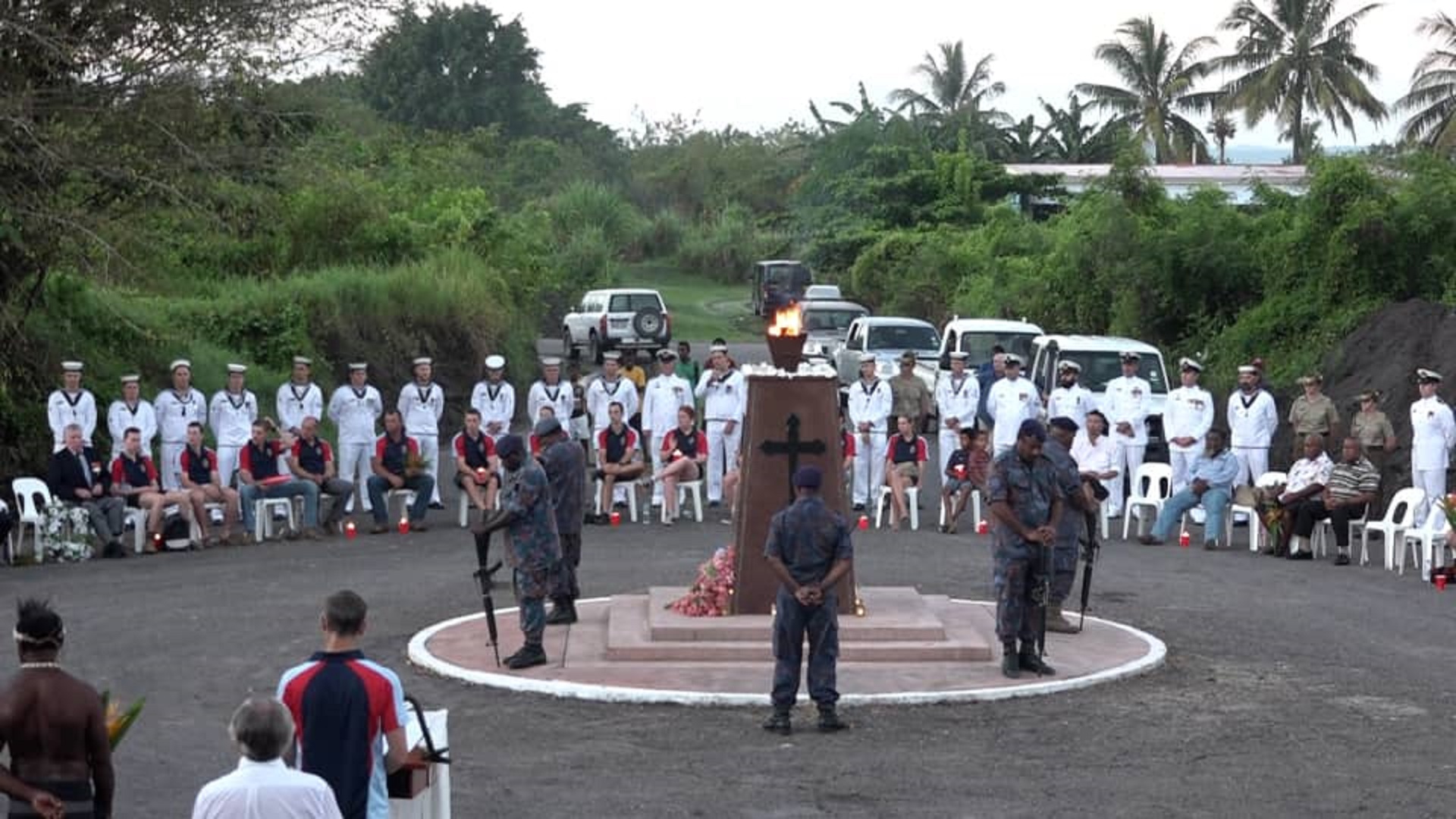By Scott Waide – EMTV News, Lae
As Australian New Zealand and PNG servicemen gathered at sacred sites to pay their respects to the fallen on ANZAC Day, PNG’s Prime Minister, made special mention of hundreds of graves throughout the country that bear no names on their headstones.
In a statement this morning, Peter O’Neill, said ANZAC day is more than just the recognition of a tragic day in our military history.
“Papua New Guinea offers our eternal respect and care, and our people will always honour their sacrifice.”
Like many other sites, Bomana war cemetery in Port Moresby is where 3842 soldiers are buried – 699 are unidentified.
“Today we walk the Kokoda Track out of respect for the lives that were lost during the campaign,” Mr. O’Neill said.
Even less documented are native Papua New Guinean soldiers who were transported from their villages to help the allied campaigns in the northern and southern parts of the colony. Many lie in unmarked graves without headstones to this day.
Increasingly, a new generation of Papua New Guineans are starting to seeking new meaning and definition to ANZAC Day and to a war fought on their land during the time of their grandparents.
Captain Ivan Hiob, a Papua New Guinea Defence Force Exchange Officer, attended Anzac service in Canberra. For him, the stories of both military and civilian lives lost in the Second World War are important historical accounts that need to be told.
“In Remembrance of the first Butibum casualties of the allied bombings in Lae in September 1943. The bomb was dropped at what is now known as Bumantop in Butibum village. …Nagong Yankawak, Mokwang Apo, Busolum Tape, Singom Yanam Saking, Kawawe…” he posted on Facebook.
In Rabaul, Lae, Kokoda and Port Moresby, dawn services were attended by relatives of soldiers who died in the allied campaign.


